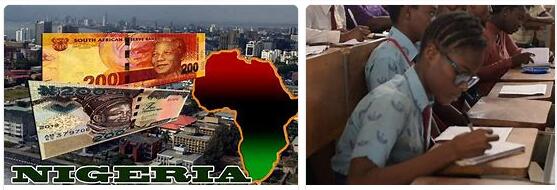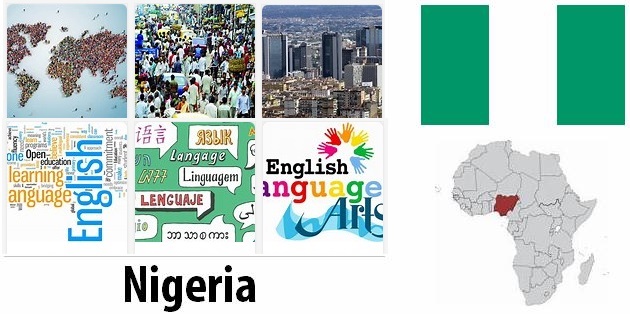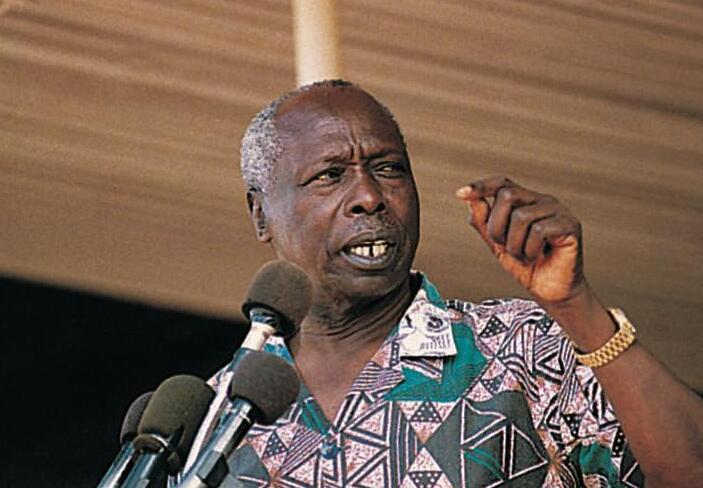Nigeria in the 21st Century
In the end of the first decade of the 21st century, Nigeria had to face a series of serious problems that still remained unsolved a few years after the return to democracy (1999). It was largely about structural problems of society and the economy that in some ways the expansion of the oil sector (N. was the first African producer) and its growing centrality, with the dominant role of large companies and the diffusion phenomena of corruption and patronage, had even contributed to aggravate. An important factor of the crisis was represented by the persistent ethnic and religious tensions that pitted a Muslim North against a Christian or animist South; this contrast was also accentuated following the spread of forms of Islamic fundamentalism in many states of the Northeast. In particular, starting from 2009, the fundamentalist movement Boko Haram intensified its activity, bleeding the country with a dripping of very serious terrorist attacks, mainly against Christian churches, which caused numerous victims and triggered further explosions of violence. Religious and ethnic problems flanked and overlapped with political and economic ones: the southern and south-eastern areas were in fact traditionally under-represented in institutions and, despite hosting the majority of oil fields, they had never expressed prominent exponents in the government of the country, enjoying minimally of the benefits of oil rent, but bearing the environmental and social costs of oil extraction. Widespread levels of corruption also prevented both the full use of oil facilities and the destination of oil revenues for investments and for the country’s economic growth. Finally, the fragility of a democratic system devoid of traditions, with a weak civil society and with a political framework strongly conditioned by ethnic affiliations, made it difficult to define coherent national policies oriented towards common strategic objectives. Presidential and legislative consultations were held in April 2003. The first saw the confirmation, with 62% of the votes, of Olesung Obasanjo, already elected in 1999, the second gave the victory to the president’s party, the People’s Democratic Party (PDP). Obasanjo launched a program focused on accelerating economic reforms and the fight against corruption and included in the new government structure some technicians with extensive experience in international financial organizations.
According to SPORTSQNA.COM, the government, however, found itself operating in a very difficult context, marked by very strong social unrest and continuous outbursts of violence, some of which seemed to combine ethnic aspects with social and economic components: the clashes between rival gangs in the Port Harcourt oil port. in the summer of 2004, the 2006 kidnappings of foreign oil industry workers, repeated attacks on oil pipelines to steal sometimes large quantities of oil (in May 2006 an attempt to tamper with an oil pipeline caused an explosion in which about 200 people died). These kidnappings and attacks, in part interpretable as simple illegal behaviors of both individuals and gangs operating within a real underground oil market, were however also inserted in an attempt by rebel groups – the most active was the Movement for the emancipation of the Niger Delta (MEND) – to lobby the government to get more resources for the southern regions. These areas had suffered over the years very serious environmental damage due to recurrent oil spills from fields and plants, mainly due to poor maintenance and the violation of elementary safety rules by the large companies engaged in the extraction of crude oil (Shell’s actions were repeatedly denounced by international environmental organizations). From September 2007, after a period of respite, MEND attacks on crude oil extraction plants intensified. A fundamental point of the government program was that relating to the renegotiation of a huge foreign debt (37 billion dollars), contracted by successive dictatorial governments until 1999. The debt represented an obstacle to any reform initiative, if we consider that in 2005 the service (costs, charges and accessories) on the same debt corresponded to five times the budget for education and fifteen times that for health. Furthermore, as a possessor of valuable raw materials, Nigeria could not access, on the basis of the criteria established by the World Bank and the International Monetary Fund, status of highly indebted poor country and therefore enjoy the cancellation of 90% of the debt. After a long negotiation and following Parliament’s firm refusal to honor the debt, in October 2005 Nigeria obtained from the Paris Club (the largest group of creditors) the cancellation of 67% of the debt, against a commitment to return the remainder with the oil proceeds. In June 2006 the Senate rejected a constitutional amendment presented by the PDP and aimed at allowing Obasanjo a third presidential candidacy in the 2007 elections. These, held in April, saw the victory of Umaru Musa Yar’Adua, candidate of the PDP, with 70% of the votes. The violence that marked the entire electoral campaign (over 200 deaths), the dubious regularity and the lack of transparency of the voting operations testified to the strong uncertainties with which the democratization process proceeded, even if for the first time the power passed from the hands of an elected president to another equally elected without the intervention of the military and without the results of the vote provoking further violence. In January 2010, the serious illness that struck the President of the Republic forced the Parliament to transfer powers into the hands of Vice President Goodluck Jonathan, which took full office in May after Yar’Adua’s death and was confirmed in the first round of the presidential elections held in March 2011. Nigerian foreign policy in the first decade of the 21st century. appeared to be characterized by a notable dynamism: fully readmitted to the Commonwealth, Nigeria established good relations with the United States and the European Union, while making agreements with China, interested in the exploitation of oil resources (Jan. 2006) and with the Indian Union; it also improved relations with the countries of the area by participating in peacekeeping missions in Sierra Leone and Liberia. In August 2008, Nigeria agreed to recognize Cameroon’s sovereignty over the Bekassi Peninsula, a region rich in mineral and oil resources located on the border between the two states, thus placingan end to a dispute that had been going on since 1993.



